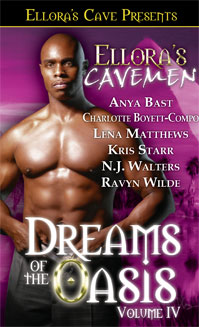Balls and Walnuts
more than you ever wanted to know
Category Archives: Reviews
Who’d wanna live in a world without wood?
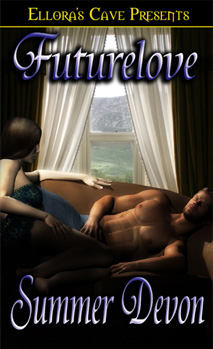 Today’s Smart Bitches Day post brings us Summer Devon’s Futurelove, an ebook I’ve wanted to read ever since I heard the premise. More on that in a moment. As those of you who have tried to get me to read your pdfs and ebooks know, I’m hopelessly slow at reading things off my computer. Dyslexic, in fact. I keep wanting to turn the page. The fingerprints are a bitch.
Today’s Smart Bitches Day post brings us Summer Devon’s Futurelove, an ebook I’ve wanted to read ever since I heard the premise. More on that in a moment. As those of you who have tried to get me to read your pdfs and ebooks know, I’m hopelessly slow at reading things off my computer. Dyslexic, in fact. I keep wanting to turn the page. The fingerprints are a bitch.
With the advent of my Blackberry, Summer’s erotica opened up to me like a nubile vixeny refugee from Barely Legal. Come to me, Summer! Show me your stuff!
Here’s the premise. In the future, I don’t know how people reproduce, but it doesn’t involve penises or vaginas. Clones, perhaps, or test tubes. Maybe they duplicate particularly attractive people using a transporter, just like they did in those old Star Trek episodes, Captain Kirk, Space Queen, and Good Kirk, Bad Kirk. I don’t know. Summer doesn’t tell us, and I don’t care, because this is erotica, not science fiction, and in erotica no one bloody cares how anything works as long as people with hot bodies are getting laid and getting laid frequently.
In the future, all manner of physical defects have been genetically engineered out of the human race. The men all have hot bods, they’re super-strong, they don’t fart or snore or leave their dirty socks lying around or ignore their girlfriends just because Monday Night Football is on and if they’re eating anything in bed, it sure ain’t crackers. They lack all of those 21st Century flaws — which would be cool, of course, except for the nonfunctional penis problem.
V redux
I had meant to write about my brief encounter, as a med student, with the world of episiotomies and morning-after crotch checks, but I can’t. I just can’t.
Cinemax aired V for Vendetta tonight. I hadn’t seen it since it first played in our local theater one year ago, and I have to tell you, it still blows me away. So, instead of dishing out some memoirist BS for your entertainment, I invite you to revisit the post I wrote last year. Click on the V.
Better yet, rent the DVD.
D.
Stop complainin’
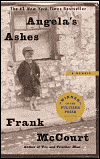 I’ve wanted to read Frank McCourt’s memoir, Angela’s Ashes, ever since I saw him on The Colbert Report. He was promoting his new book, Teacher Man, the third volume of his memoir. The man impressed me with his wit and kindness; if I remember correctly, Stephen Colbert didn’t even try to give him a hard time, but instead kicked back and enjoyed the moment. Unfortunately, YouTube doesn’t have the interview.
I’ve wanted to read Frank McCourt’s memoir, Angela’s Ashes, ever since I saw him on The Colbert Report. He was promoting his new book, Teacher Man, the third volume of his memoir. The man impressed me with his wit and kindness; if I remember correctly, Stephen Colbert didn’t even try to give him a hard time, but instead kicked back and enjoyed the moment. Unfortunately, YouTube doesn’t have the interview.
I have to admit to some shallowness, though. The title, Angela’s Ashes, sounded like chick lit. And then, when I found out it was a memoir of his early childhood, I figured the title referred to the death of his mother or grandmother (it doesn’t), and that put me off. While in Orlando, I decided to stop procrastinating and buy the book, and . . . wow.
I’m the sort who likes to revel in his awful childhood, so I’m impressed when someone out-awfuls me. Not only does McCourt out-awful me, I may never complain again. (Or at least I’ll stop complaining until I feel like complaining, and then I’ll undoubtedly hear McCourt’s voice in the back of my mind telling me to grow a spine already.)
During the Great Depression, Frank McCourt and his brother Malachy are born in New York City to two Irish immigrants. The death of Angela McCourt’s daughter pushes her into a deep depression, and her relatives decide the thing for her is to move children and husband back to Ireland. Trouble is, Ireland is in even worse straits than America. What follows is an eye-opening tale of survival in the face of crushing poverty, a story that would have been depressing were it not for McCourt’s clear, strong voice.
McCourt has been compared to Joyce, but I found his journalistic spareness and lack of sentimentality more reminiscent of Hemingway (minus the machisimo). Angela’s Ashes seems uncompromisingly honest. McCourt reports the facts, even — especially — when they reflect poorly on him.
I was struck by this comment from the publisher:
Wearing shoes repaired with tires, begging a pig’s head for Christmas dinner, and searching the pubs for his father, Frank endures poverty, near-starvation and the casual cruelty of relatives and neighbors — yet lives to tell his tale with eloquence, exuberance and remarkable forgiveness.
Forgiveness? Really? For me, the most fascinating part of McCourt’s story is his relationship with his mother. Perhaps there will be a rapprochement in McCourt’s second book, ‘Tis, but Angela’s Ashes ended on an unsettled if not hostile note. And for the father who abandons his wife and children, McCourt shows no inclination to forgive.
I think I’ll have my son read this as part of his schoolwork (the joys of homeschooling — we set the curriculum). Then, whenever he kvetches, I’ll tell him, “Stop complainin’. You coulda grown up with nothin’ to eat but bread and tea.”
***
I’m outa here. See you next Saturday for live blogging 😉
D.
PS: There’s a movie (I haven’t seen it), a documentary, and a memoir by Frank McCourt’s brother, Malachy.
Flickr Follies for the evening, and a review
Sunday caught me between two hefty posts — Saturday’s story, and tomorrow’s interview with Jackie Kessler. Since I’m too anal retentive to let a day go by without a post, here’s a Flickr image for your contemplation. From Ga Music Maker’s photo stream:

But if you simply MUST read some stuff by yours truly, here’s my review of Interzone #208. That’s what I’ve been working on for the last two weekends. Enjoy.
D.
SBD: Ellora’s Cavepeople
For today’s Smart Bitches Day, I bring you:
Ellora’s CAVEMEN
Dreams of the Oasis, Vol. IV
A few of my beta readers know that my romance-in-progress began its days as an Ellora’s Cave wannabe. I launched into it as ignorant as could be, my erotica knowledge limited to Pauline Reage’s Story of O, Anais Nin’s Delta of Venus, and Anonymous’s Deva-Dasi (hot writer, that Anonymous). But after I was two, three, four chapters into it — and no flesh — my betas informed me I was writing romance, not erotica. Oh, well.
So I was delighted when Kris Starr asked me to read “Virtuosity,” her story in Dreams of the Oasis, Volume IV. Maybe now I would have a clearer idea of what goes into modern erotica.
Here’s the setup. You’re in the faaaar future. Three years after her husband was killed in a surprise Korgon attack, Commander Dillon Walker needs to get her groove on – and her friends know just the thing. Whackin’ off in the HoloSuite! Because, face it, HoloSuites were invented for meaningless, no-strings-attached, no-risk-of-STDs, non-stop, HOT SEX. (You just know that between episodes, Jean Luc Picard was getting a computer-simulated Counselor Troi to give him some o’ dat “around the alpha quadrant” action. And Worf? That Klingon was such a sub. You don’t want to know.)
Enter Aidan. Or perhaps the appropriate syntax is, “Aidan, enter. Several times, please.” Aidan is Dillon’s dream squeeze. He may be a hologram but he’s solid man-flesh, and you know those holocreations can’t be bargained with. They can’t be reasoned with. They don’t whine, fart in bed, or come in your mouth (unless you ask them to), and they absolutely will not stop, ever, until you are satisfied.
It occurs to me that if George W. Bush had taken the money wasted on the Iraq War and used it for basic research, not only would we have true energy independence, but each and every family would have its own HoloSuite. Damn him, damn him to hell!
Rest assured, Dillon is well and truly satisfied by the story’s end; she’s moved beyond the death of Dear Hubs, and a surprisingly human (i.e., not computer generated) prospect looms hornily on her horizon.
How’s the sex? Chick friendly, but what do you expect — this is Dillon’s fantasy, after all. I had hopes for something a tad S&M when Aidan, in 21st Century police officer’s garb, told Dillon she needed to be punished, and followed that with a surly, “Spread your legs, ma’am,” but no tasers, no cuffs, no hot baton action (unless you count what Dillon does to Aidan’s baton in the next scene . . .) Thorough rogering is the name of the game.
It occurs to me that I’m not writing my sex scenes with women in mind. I’m spare on the foreplay, heavy on the genital action, and probably too clinical in my descriptions. If Kris’s story is representative, I need more kissing, breast-groping, and nipple-strumming. My counter-argument is that my protagonists are horny 25-year-olds. Do they have time for foreplay? No! They don’t even have enough time to sleep!
By the way, you know those back-cover author photos? I have just the one for Kris. Here she is with her friend Rella downing shots of Krugy. Note third Krugy comfortably lodged in the author’s cleavage.
I gotta love two gals who swallow my Krugys.
D.
Too clever by half
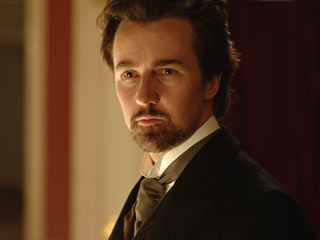 Imagine a necklace, its wooden locket small, flat, lozenge-shaped. It has a seam along its long diagonal, and it is hinged at the center. Twist it, and it changes from lozenge to heart, and what’s more, a new seam appears. Now the wearer may open the heart, revealing a tiny photo of the face of her beloved.
Imagine a necklace, its wooden locket small, flat, lozenge-shaped. It has a seam along its long diagonal, and it is hinged at the center. Twist it, and it changes from lozenge to heart, and what’s more, a new seam appears. Now the wearer may open the heart, revealing a tiny photo of the face of her beloved.
But the locket is a fiction, a special effect, and the metaphorical strings and wires are in plain sight. Seams visible one shot vanish in the next. Someone has done some sleight of hand, and it wasn’t the young girl’s lover, the budding Illusionist. The locket isn’t a magician’s trick; it’s merely the prop of a dishonest filmmaker.
This is one of the film’s earliest images, and also one of its most emblematic. The filmmaker (director and screenwriter Neil Burger) isn’t content to leave visual deceit to his protagonist, commoner-cum-performer Eisenheim (Edward Norton). He’s willing to fool his audience, too, with misleading reaction shots and uproariously illogical character motivations, whatever is necessary to lead his viewers by their noses to his oh-so-predictable surprise ending.
You will believe a dragon can blow hot air
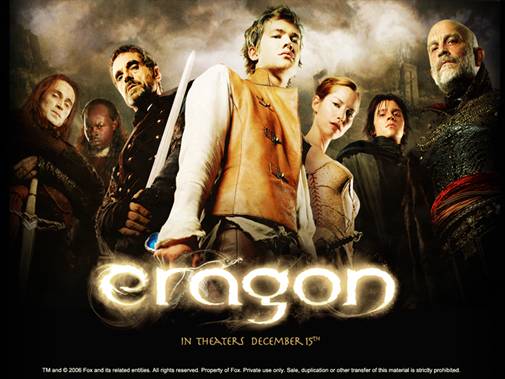
My son lost his innocence yesterday.
“At first it was like a love-hate thing, but then I just hated it,” he said afterwards, and proceeded to recount all the many ways in which the movie screwed up the book.
Take that chick standing to Eragon‘s left. Would you believe she’s an elf? Notice the lack of pointy ears or funky-colored skin. You could have knocked me over when Jake told me she’s supposed to be an elf.
Look at all those dudes (and the elf chick), posing like it’s a high school football team picture. Ooooh, they’re tough. Too bad Eragon (18-year-old newcomer Edward Speleers, looking like a younger, softer Michael York) has all the stage presence of dragon poo, so that in his scenes with Jeremy Irons, Irons seems to be monologuing. Irons does his best with a script that feels computer-generated; he and uber-evil Durza (Robert Carlyle) are the only watchable foci in an otherwise lukewarm cast.
Yeah, that’s John Malkovich over there on the right, playing the eeeevil King Galbatorix. But it’s a one-note performance and the guy has maybe two minutes of screen time. I liked Malkovich best in Being John Malkovich, incidentally, or perhaps Ripley’s Game. When he’s good, he’s very good. But I’ll never forgive him for his sterile Kurtz in the 1994 television version of Heart of Darkness.
Back to Jake’s loss of innocence. Think about it: his sole prior experience of books translated into movies was the Harry Potter series, which followed the books slavishly, often (IMO) to the detriment of the movies’ flow. I don’t think he’s ever seen one of his favorite books butchered.
Karen read the books, too, and she said the biggest flaw of the film was the lack of character development. Jake agrees. That was obvious even to me, the virgin viewer. Jake disliked that they glossed over Eragon’s magic training, but here are his top three crits:
1. “They completely rewrote the fight between Eragon and Durza. Eragon didn’t get his back injury.”
2. “They completely undermined the Ra-zac. The Ra-zac got killed! They’re not supposed to get killed until their third book! And they completely forgot the Ra-zac’s parents, which are their mounts.” (Eeew. Purge image of me riding either of my parents.) “The Ra-zac are much more powerful in the book. They had the power to put a human into a dreamlike state so they could attack them. The Ra-zacs were black, not green. And they wore cloaks and they could talk. And they could attack in the night.”
3. “They didn’t give Brom’s character enough attention. He was much more interesting.” (“More three dimensional,” says Karen. “And a lot grumpier in the book.”)
Karen adds that in the book, the relationship between Eragon and his dragon, Saphira, had more depth. And there you have it, a family meta-review . . . but I forgot one thing.
My number one crit has to do with the dragon, Saphira. Rachel Weisz is the voice of Saphira.

Mmmm. Rachel Weisz. What was I saying?
Oh, yeah. They could have saved a ton of money by using all of Ms. Weisz, not just her voice. Picture it: a few blue scales around her eyes, a few more down her naked back. Some cool-looking wings or something to explain how she can fly. Forget all that CGI dragon stuff; let Eragon ride Ms. Weisz into the sunset.
Now, that’s a movie I’d see again.
D.
Review of Helix SF, Issue #2
Here’s my review. If you’re feeling particularly lazy, my favorites were the stories by Jay Lake, Vera Nazarian, and Jennifer Pelland. Enjoy.
D.
Ghost hummer
I wish I could remember where I first read about Vincent Gallo’s one-man opus, The Brown Bunny. The reviewer had much to say about a film produced, written, edited, and starred in by Gallo, which seemed to have as its whole point the receipt of a real, honest-to-God, nothing-held-back, lip-smackin’ hummer by Gallo. But the reviewer said nothing, not a damned thing about the mind-numbing boredom.
Review of Helix SF, Issue #1
Here’s the review. This is an invitation-only gig, so SF and fantasy writers, don’t get your hopes up about the new market.
Later tonight: A Brief History of Falafel.
D.

